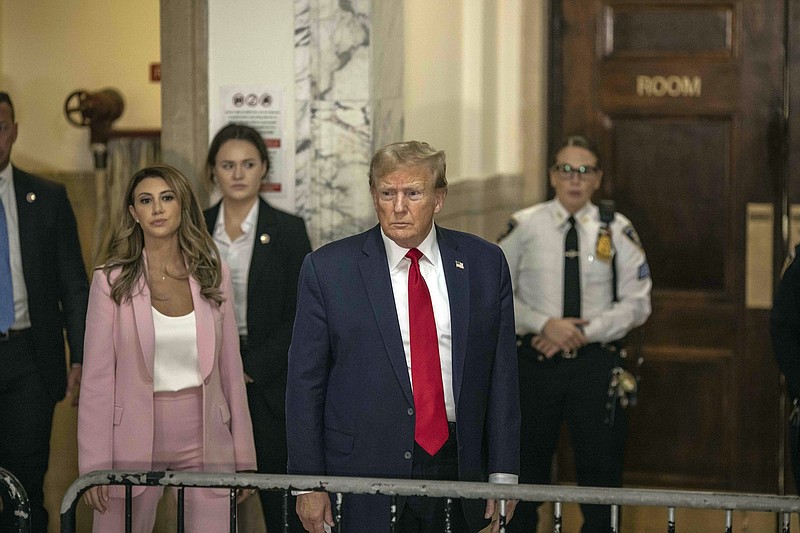Everyone knows that politics involves more truth-stretching than most professions. As the line (often misattributed to Mark Twain) goes, "Politicians and diapers must be changed often, and for the same reason."
It's also a well-established truism that populist politicians lie even more than conventional politicians. This is in part because populism requires fomenting, exploiting or maintaining a high level of public anger. If you tell the crowd that an issue is complicated, that solutions come with trade-offs, or that your well-intentioned opponents make some fair points, there's a danger the mob will grow bored and lose interest in you. But if you tell them the solutions are obvious and easy, and that your villainous enemies are stopping you from fixing everything, well, that's more like it.
What gets less attention is how the deceptions of conventional politicians also create market opportunities for demagogues.
You probably heard that Donald Trump, Republican presidential front runner, recently said he'd be a "dictator" on day one of his presidency. Given the growing chatter about how a second Trump presidency would become a dictatorship, Trump's comment threw the commentariat into a tizzy. Whether he was joking or deadly serious or something in between, saying you'll be a dictator for any amount of time is no laughing matter, particularly for a former president who likes to test-drive real desires by pretending he's joking.
If you put aside the word dictator for a moment, this promise is sadly banal. Presidential candidates have a habit of dishonestly vowing they can do all manner of things unilaterally on "day one" of their presidencies. In 2020, for example, Kamala Harris repeatedly promised that if elected, she'd repeal Trump's tax cuts on her first day, despite the fact that presidents cannot single-handedly repeal laws. No wonder voters think presidents have powers they don't have.
But this isn't just about presidential power. Consider Trump's vow to issue some sort of day-one diktat on oil-drilling (we'll save closing the border for another time). Trump is working from the widespread belief among many Republicans that, in the words of then-presidential candidate Sen. Tim Scott, Biden "has shut down energy production in America." Trump often says that a lack of drilling is what's been driving "massive inflation."
By any measure, this is nonsense (To be sure, high gas prices contributed to inflation, but high inflation also helped drive up energy prices. This stuff is complicated).
Trump often boasts that gas prices were $1.87 per gallon when he left office. They weren't, but they did get that low in April 2020, only partly thanks to his energy policies. The COVID-19 epidemic smothered demand for gas, thanks in part to his lockdowns.
Meanwhile, under Biden, domestic oil production has hit record highs, surpassing production under Trump and nearly doubling Saudi Arabia's output. We're the largest producer of natural gas by far, producing almost as much as the next three countries (Russia, Iran, China) combined.
Now one reason most people don't know this is that the Biden administration doesn't brag about surging fossil fuel production since Biden promised to wean the country off fossil fuels. But that's part of the problem, too. Many Democrats want Biden's "war on fossil fuels" rhetoric to be true as much as Republicans do. It's easy for politicians to mislead when so many people want to be misled.
But the lie populist politicians spread most is that our problems are easy to solve and that sinister forces — "billionaires," "special interests," "globalists," "big corporations," even "Jewish financiers" or just "business as usual politicians" — are standing in the way. Steamroll these string-pullers and quislings, and everything will be great. That's the language of demagogues and those who help pave the way for them.
